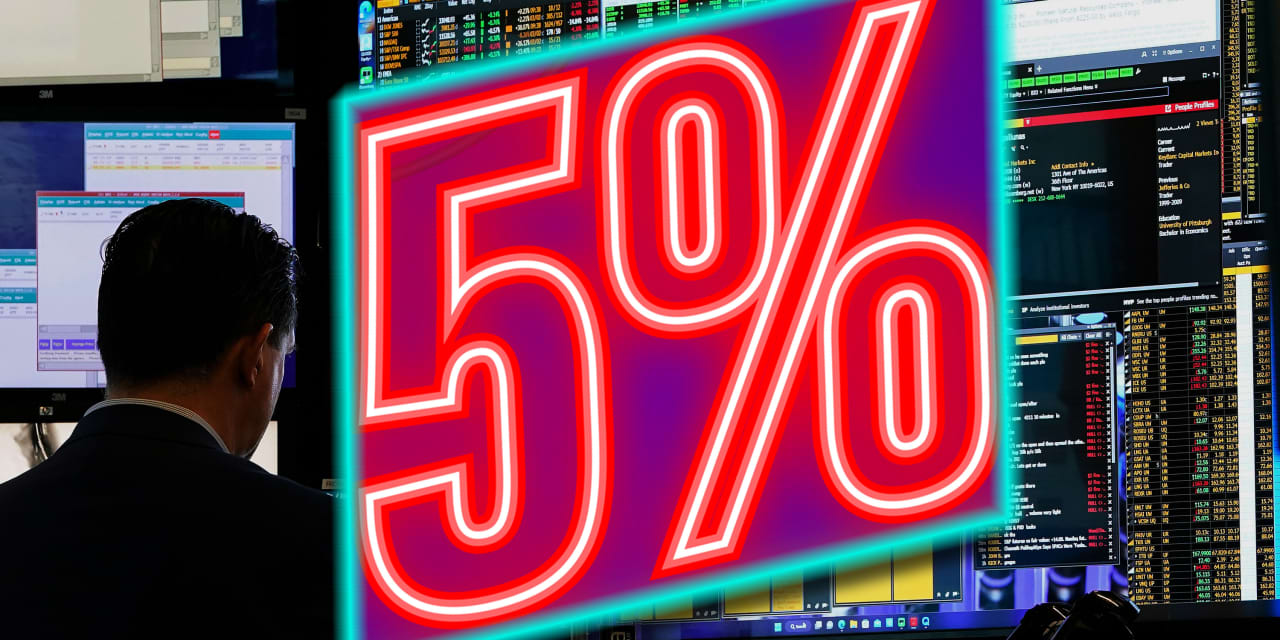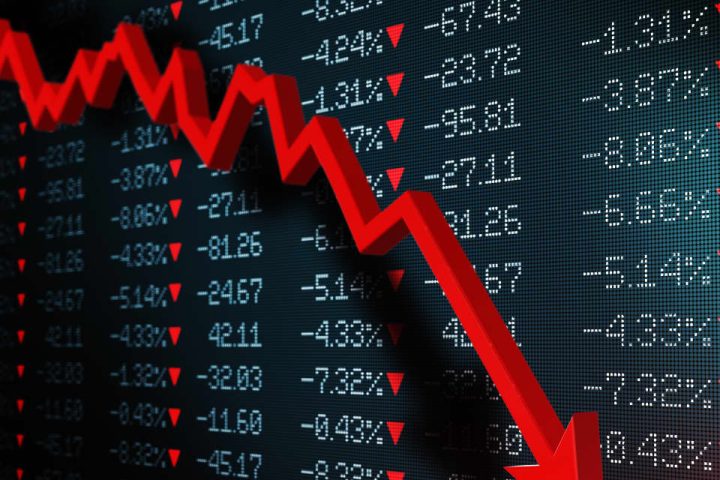The stock market has been preoccupied with the number five of late, and not for reasons that typically make it a subject of fascination. Five plays a key role in many of the world’s religions, while for math nerds, it isn’t just the third prime number but also the first of the so-called “sexy primes”—separated from 11, another prime, by six. In numerology, five is linked with “change, evolution, love, and abundance.”
But it’s the 10-year Treasury yield and its approach to 5%—a level last seen in 2007—that has investors concerned, worried enough to send stocks lower this past week. The
S&P 500 index
fell 2.4% on the week, while the
Dow Jones Industrial Average
lost 1.6%, and the
Nasdaq Composite
dropped 3.2%. No love and abundance there.
All of the tumult is understandable. After all, the Federal Reserve has moved the federal-funds rate up by 5.25 percentage points since March 2022, at the fastest clip in more than 40 years, while the 10-year yield has surged 1.64 percentage points from its lowest point of the past six months. But investors may be getting themselves worked up over nothing.
“It’s not 5% that matters to stocks,” says Michael Antonelli, managing director and market strategist at Baird. The issue is how quickly we’ve gotten there. Yet even with the turmoil in the Middle East, the stock market may be able to avoid a larger decline, as long as the economy holds up. So far, so good.
The job market is still strong—first-time unemployment claims came in below 200,000 in the most recent report—while economists expect third-quarter U.S. gross-domestic-product growth to come in at 3.3% when it is released on Thursday. The Atlanta Fed’s GDPNow model puts it at 5.4%.
While it would be a mistake to dismiss the macroeconomic and geopolitical concerns now weighing on markets, overestimating their significance could also be detrimental to an investment portfolio. Antonelli favors energy stocks, which have been getting a boost with oil trading above $90 a barrel. The
Energy Select Sector SPDR
exchange-traded fund (ticker: XLE) has been trading sideways this year but offers safe dividends. “High quality” consumer-discretionary stocks also look good and will benefit as long as the economy stays strong, he says. Retail sales rose 0.7% in September, and
American Express
(AXP) posted yet another quarter of record revenue and profit as America’s propensity to shop continued, even if its stock fell 5.4% on Friday following the release.
The stock market just needs time to adjust to higher bond yields and the possibility that they will stay high for longer. That should be the base case following remarks from Fed Chairman Jerome Powell on Thursday at the Economic Club of New York, which suggest that the Fed will hold rates steady and let higher bond yields do their work.
The number five might be scary, but we recommend that investors take a deep breath and count to 10. This, too, shall pass.
Write to Carleton English at [email protected]
Read the full article here







